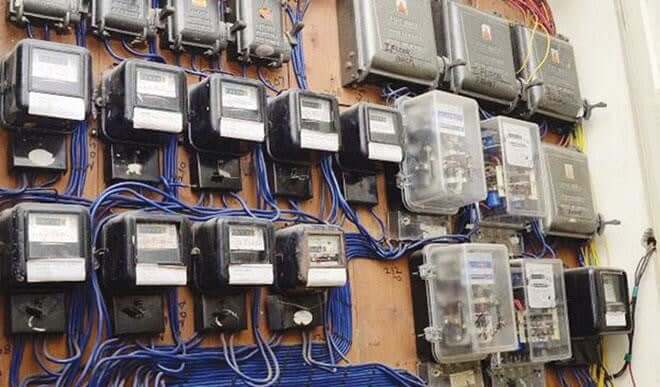In what could mark a turning point for electricity affordability in Nigeria, the Enugu State Electricity Regulatory Commission (EERC) has announced a significant tariff reduction for Band A electricity consumers, lowering rates from ₦225/kWh to ₦160/kWh effective August 1, 2025.
This move positions Enugu as the first state to enforce such a drastic tariff cut under the newly amended Electricity Act, which grants states control over electricity regulation within their borders.
This reduction affects consumers who receive a minimum of 20 hours of electricity daily and is expected to ease financial strain on households and businesses alike.
Under this new rate, a ₦1,600 electricity token will now provide 10 kilowatt-hours of energy, equivalent to powering a freezer, two fans, and a few light bulbs for about 6–8 hours a day, depending on usage patterns.
For small business owners, this could mean a sharp reduction in generator fuel costs and increased productivity.
But the announcement has sparked backlash from electricity generating companies (Gencos), who argue the move threatens the economic viability of power generation and contradicts the Multi-Year Tariff Order (MYTO) set by the national regulator, NERC.
They warn that unilateral decisions by states could lead to market distortions and investor pullback, especially if other sub-national entities follow suit.
This isn’t the first time electricity pricing reforms have stirred controversy in Nigeria. In 2015, Lagos attempted a similar subsidy for low-income households within certain LGAs, only to reverse the policy months later due to funding gaps and regulatory pushback.
However, the Enugu model, based on the state’s own Distribution Tariff Model (DTM), aims to avoid these pitfalls by using localized data and stakeholder consultations to ensure cost-reflective yet consumer-friendly pricing.
The move also places moral and economic pressure on other state governments to reconsider their tariff regimes, particularly in regions where consumers pay high rates but receive poor service.
Several advocacy groups have pointed out that prioritizing citizens’ welfare should be at the core of electricity reforms, especially as energy poverty continues to affect over 85 million Nigerians.
Statistically, Band A customers represent only 15% of Nigeria’s total electricity users, yet account for a significant share of energy revenue. The challenge now lies in balancing affordability with sustainability.
As Nigeria’s national grid struggles to deliver beyond 5,000 MW from an installed capacity of over 13,000 MW, new decentralized efforts like Enugu’s could set a precedent for more equitable and locally relevant energy policy.
The tariff reduction, while controversial, offers a potential boost to the local economy. With more affordable power, small businesses such as barbershops, welders, tailors, and cold-room operators may be able to reduce their dependence on generators and cut operating costs.
For households, the savings could be notable. At the previous Band A rate of ₦206.80/kWh, a 100-unit recharge cost ₦20,680. Under the new rate, the same 100 units would now cost ₦16,000, a ₦4,680 drop. Depending on appliance usage, those 100 units could last a small household between 8 to 12 days.
Yet, affordability isn’t the only concern. Enugu’s move has put pressure on other states with electricity laws in the pipeline like Lagos, Ondo, and Plateau, to either follow suit or justify why they haven’t.
Critics argue that failure to act could deepen inequality in electricity access, as wealthier states or regions adjust rates in favour of citizens while others maintain stiff pricing models.
The Nigerian Electricity Regulatory Commission (NERC) still oversees the national grid, but the Electricity Act 2023 has effectively created a patchwork of localized power governance.
This means states like Enugu can make pricing decisions based on local realities, but also assume responsibility for balancing cost, supply, and quality.
What’s clear is that the Enugu model is a test case, one that could either spark more citizen-centric reforms or deepen regulatory tensions across Nigeria’s fragmented power landscape.
Enugu State in Nigeria has announced a significant reduction in electricity tariffs for Band A consumers, lowering prices from ₦225/kWh to ₦160/kWh effective August 1, 2025.
This makes Enugu the first state to implement such a cut under the amended Electricity Act, which allows states to regulate electricity within their territories.
The reduction targets consumers receiving at least 20 hours of electricity daily and is expected to lessen financial burdens on households and businesses.
While the move is seen as beneficial for consumers, it has met resistance from electricity generating companies, who argue it could impact the economic viability of power generation and contradict national regulations.
The reduction also pressures other states, like Lagos and Plateau, to reconsider their tariffs amidst ongoing electricity reforms aimed at addressing energy poverty affecting over 85 million Nigerians.
Enugu's approach, centered on a localized Distribution Tariff Model, seeks to balance affordability with sustainability by using local data for pricing decisions.
The tariff change presents an opportunity for economic boost by making power more affordable for small businesses, potentially reducing generator dependency and operational costs.
However, the model also presents a test case for balancing cost, supply, and quality within Nigeria's fragmented power sector.






